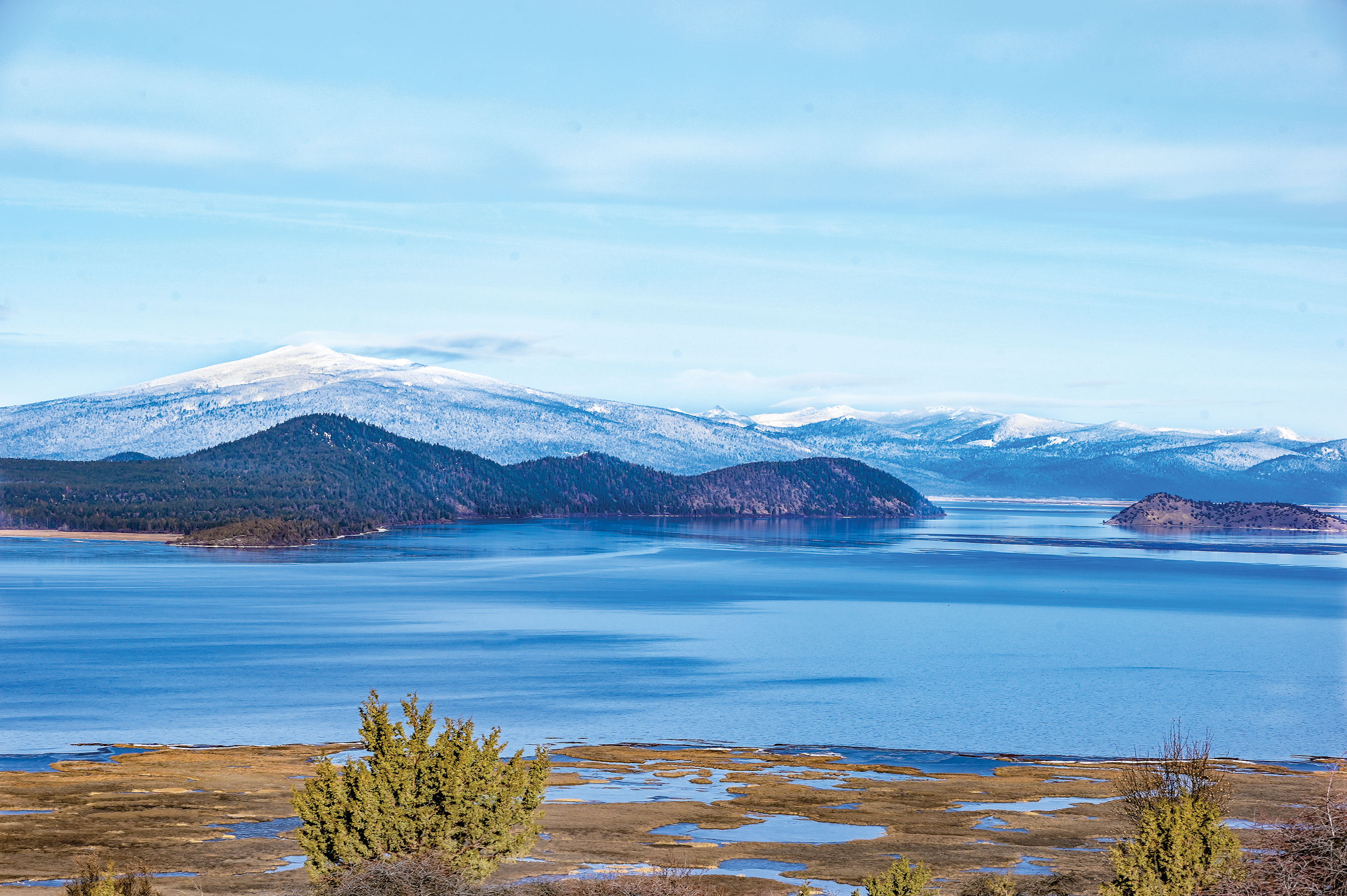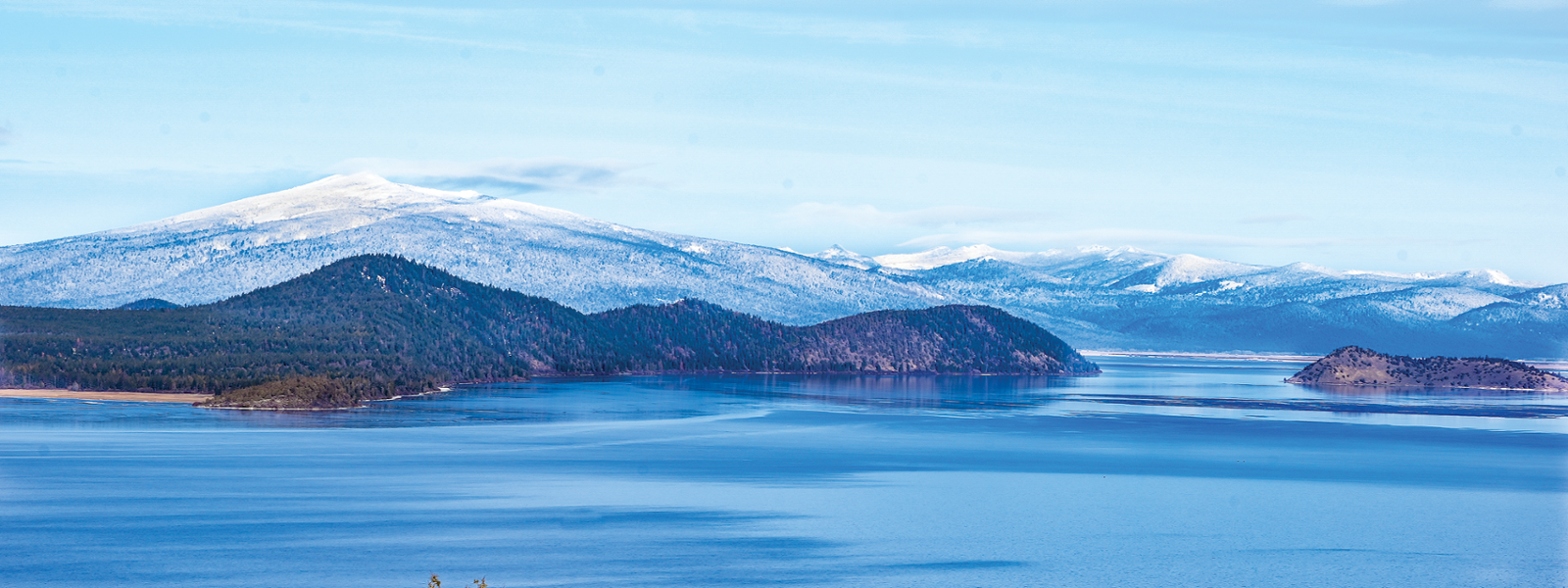Federal actions on water frustrate Klamath farmers


Klamath Basin irrigators are urging the U.S. Bureau of Reclamation, which manages the Klamath Water Project, to fill Upper Klamath Lake for needs of protected species and agriculture.
By Christine Souza
A decades-long tussle over water continues at the California-Oregon border, as irrigators of the federal Klamath Water Project say they find themselves hamstrung again by environmental regulations and operating procedures prioritizing protected fish over the needs of agriculture—the economic engine for local communities.
“There are thousands of acres of some of the best farmland in the world out here, and much of the project is dry,” said Tulelake farmer Ben DuVal, president of the Klamath Water Users Association, which represents Klamath Water Project irrigators. “Fields haven’t been irrigated in three years, and dry fields mean farms do not have income, and it means a loss of income for everybody.”
DuVal said he is frustrated by “a complete breakdown in management” at the U.S. Bureau of Reclamation, which “built this project, and they essentially are not taking care of it.”
After three years of drought and little to no water allocated to the project during that time, Reclamation, which manages the Klamath Project, put in place temporary operating procedures in January.
In a letter to Reclamation Regional Director Ernest Conant, irrigators said the actions provide only enough water in Upper Klamath Lake “to achieve certain lake levels for suckerfish and to release 50,000 acre-feet for a surface flushing flow to the Klamath River,” and do not include delivering water to project contractors or wildlife refuges.
In its temporary operating procedures, released Jan. 26, the Bureau of Reclamation said “the Klamath Basin remains in a severe to extreme drought status, which would extend to a fourth consecutive year if current forecasts are realized.”
Though the agency noted that “recent wet weather boosted the accumulated water precipitation to 100% of normal” on Jan. 19, it said temporary operating procedures were needed to achieve sufficient elevation in Upper Klamath Lake by March 31 to meet Endangered Species Act requirements for suckers.
Water from Upper Klamath Lake is dedicated to fish species based on regulatory guidelines put in place by the National Marine Fisheries Service and U.S. Fish and Wildlife Service. NMFS has authority related to coho salmon and USFWS has authority related to Lost River suckers and shortnose suckers.
To manage for the needs of fish, federal agencies extended the interim operations plan into 2024, after it expired last September. As part of this process, DuVal said, agencies added temporary operating procedures that “let more water go down the river, rather than storing more water in Upper Klamath Lake.”
“We’re still in a drought, and we’ve got some snow coming, but let’s be reasonable about how we operate our storage,” DuVal said. “Reclamation has set the bar so low, they’re not even trying to fill the lake. With the storms we’ve had, it is ridiculous not to take advantage of that.”
The Klamath Water Users Association says rather than store water in the lake, federal water managers have released much water down the Klamath River, although last week, with inflow forecasts for the lake deteriorating, Reclamation proposed a flow reduction to maintain elevation in the lake for fishery needs.
KWUA Executive Director and Counsel Paul Simmons said the river was running at a rate of 100,000 cubic feet per second a few weeks ago, yet federal policies prohibited cutting those releases by small amounts “because the calendar says this is what you do.”
“In September, we started saying, ‘You’ve got to fill Upper Klamath Lake,” he added.
Reclamation officials said they will compile habitat survey data weekly to inform decisions to increase or decrease flows from the Klamath River’s Iron Gate Dam.
In another challenge, Simmons said the Yurok tribe and other groups filed suit, arguing that no water should be delivered unless certain river flows are met throughout the summer. A federal judge Monday sided with the plantiffs, saying Reclamation must manage water for needs of species protected by the ESA.
Meanwhile, DuVal said, “They’ve dried this project up for over 20 years with absolutely nothing to show for it other than the communities here that they’ve decimated and the farms that are suffering.”
Tulelake row crop farmer Nick Macy, who owns Macy’s Flying Service, which offers aerial and ground application services for farmers, said the entire Klamath Basin is impacted, including his business.
“Our whole economy is based on agriculture, so if you don’t have farmers farming, then everything starts falling apart,” Macy said. “All of the businesses that support agriculture are taking a hit, and labor market starts being affected, and that affects other things like the tax base and funding for schools.
“We know we are in a drought, but much of this is a political drought,” Macy added. “The reason Upper Klamath Lake was formed was to hold water for agriculture, and that’s gone by the wayside.”
Modoc County Supervisor Ned Coe said some county residents have run out of water used for health and safety needs.
“A multitude of domestic wells have gone dry because there’s no surface water irrigation,” Coe said. “Two years of essentially no water allocation and you think, OK, we have decent precipitation so far this year, but it is looking like it will be as bad as the previous two. That’s when people reach the breaking point.”
Those affected say that federal agencies are constantly moving the goal posts in favor of single-species management.
“There are meaningful things that can be done that would change the way the project operates and be more beneficial for multiple species,” Simmons said. “We can keep working on that, but we have to show the wrongness of this and force accountability.”
He added, “There’s an inescapable feeling that there are people who want a trophy to take down the farmers.”
(Christine Souza is an assistant editor of Ag Alert. She may be contacted at csouza@cfbf.com.)




